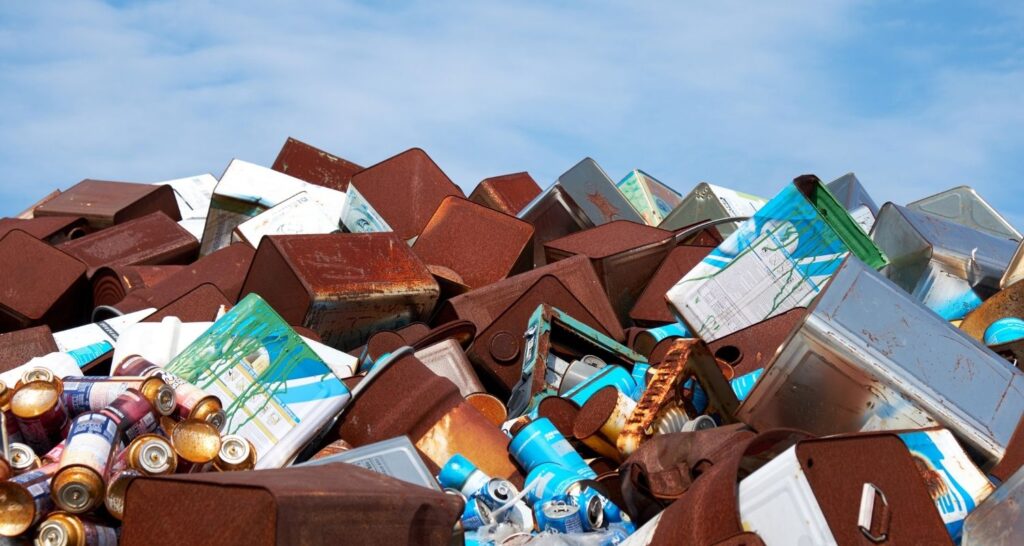Solid waste handling services are responsible for collecting, transporting, processing, composting, and disposing municipal and certain private-sector solid debris including trash, recyclables, organics, yard waste, electronics and domestic hazardous waste.
What Is Solid Waste Handling?
“Solid waste handling” is a term we hear a lot these days, but we must first define solid waste to comprehend it completely. “Solid waste” is a broad category of rubbish which originates in offices, residences, businesses, and agricultural or other commercial operations and is regarded as undesirable or no longer usable.
Solid waste handling refers to collecting, transporting, processing, and disposing of solid waste items in a manner which best meets economic and environmental concerns (among other things). Solid waste handling aims to prevent and eliminate the negative effects that solid wastes can have on human health and the environment, while also helping to improve our quality of life and promote economic growth.
Effects of Improper Solid Waste Handling
- Surrounding Litter
Wastes pile up and pose a hazard due to inefficient trash disposal methods – notably by municipal waste handling teams. While individuals clean their homes and workplaces, they leave garbage in their wake, impacting both the environment and the community.
- Effect on Human Health
An improper garbage disposal can harm the health of the people who live near polluted areas and landfills. The respective health of trash disposal workers and other staff associated with these dump operations is also jeopardized. Skin irritations, respiratory disorders, blood infections, development problems, and even reproductive concerns can result from inadequately treated trash.
- Pests Causing Disease
Garbage dumping causes biodegradable items to rot and disintegrate under unclean, unsanitary and unmanaged circumstances. After a few days of decomposition, this emits a terrible odor and serves as a breeding ground for several types of disease-causing insects (as well as infectious germs). Furthermore, it detracts from the area’s aesthetic value.
- Environmental Issues
Toxic metals, hazardous wastes, and chemicals may be found in industrial solid waste. When solid wastes are discharged into the environment, they can produce biological and physicochemical issues which can damage or change the composition of soils in that region.
- Pollution of Soil and Groundwater
Toxic substances and chemicals can seep into the soil and damage groundwater. Hazardous wastes often mix with regular rubbish and other combustible wastes during the collection process, making disposal even more difficult – and dangerous.
- Toxic Gas Emissions
When hazardous wastes such as pesticides, batteries containing lead, mercury or zinc, cleaning solvents, radioactive materials, e-waste, and plastics are burnt along with paper and other non-toxic scraps, toxic gases are produced. These gases can cause a variety of disorders including cancer.
- Effects on Land and Aquatic Animals
Animals face the impact of pollution generated by improperly disposed waste and junk due to our negligence with our waste and garbage. Furthermore, consumption of styrofoam and cigarette butts has been linked to the mortality of marine creatures. Animals are also in danger of poisoning by eating grass in polluted regions and landfills because the poisons permeate the soil.
Methods of Solid Waste Handling
 There are several strategies for dealing with solid waste handling. Some of the most accepted ways are as follows:
There are several strategies for dealing with solid waste handling. Some of the most accepted ways are as follows:
- Landfills for Sanitary Waste
This is the most often utilized solid waste disposal technique today. Garbage is laid down in thin layers, crushed, and covered with dirt or plastic foam.
- Incineration
This procedure entails burning solid garbage at high temperatures until the waste is reduced to ash. Incinerators are designed not to emit excessive heat while burning solid waste.
- Recovery and Recyclability
Recycling, often known as “resource recovery”, is reusing usable but discarded objects. Plastic bags, tins, glass, and containers are often recycled, since they are likely to be limited goods within many contexts.
- Composting
Because there isn’t enough room for more and more landfills, biodegradable yard waste is permitted to degrade in a specially created medium. Composting uses only biodegradable waste materials.
- Pyrolysis
This is a technique of solid waste disposal in which solid waste is chemically destroyed by heat in the absence of oxygen. This frequently happens under pressure and at temperatures as high as 430 Celsius. Solid wastes are converted into gases, solid carbon and ash residues, and small amounts of liquid.
If you’d like to learn more about solid waste handling, visit Reaction Distributing or call us at (866) 244-0009 today.



